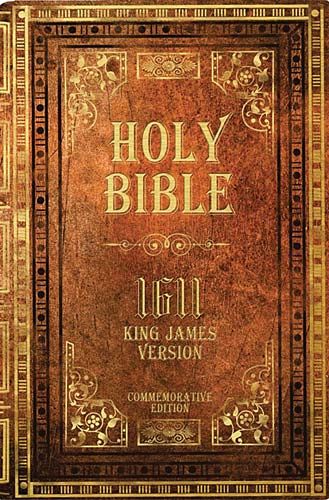Edited by Sophie Paisley
“Wait on the Lord, Be of good courage, and he shall strengthen thine Heart, wait I say on the Lord.”
psalm 27:14
I cannot but take notice of the wonderful mercy of God to me in those afflictions, in sending me a Bible. One of the Indians that came from Medfield fight1, had brought some plunder, came to me, and asked me, if I would have a Bible, he had got one in his basket. I was glad of it, and asked him, whether he thought the Indians would let me read? He answered, yes. So I took the Bible, and in that melancholy time, it came into my mind to read first the 28th chapter of Deuteronomy2, which I did, and when I had read it, my dark heart wrought on this manner: that there was no mercy for me, that the blessings were gone, and the curses come in their room, and that I had lost my opportunity. But the Lord helped me still to go on reading till I came to Chap. 30, the seven first verses3 , where I found, there was mercy promised again, if we would return to Him by repentance; and though we were scattered from one end of the earth to the other, yet the Lord would gather us together, and turn all those curses upon our enemies. I do not desire to live to forget this Scripture, and what comfort it was to me.

Now the Ind. began to talk of removing4 from this place, some one way, and some another. There were now besides myself nine English captives in this place (all of them children, except one woman). I got an opportunity to go and take my leave of them. They being to go one way, and I another, I asked them whether they were earnest with God for deliverance. They told me they did as they were able, and it was some comfort to me, that the Lord stirred up children to look to Him. The woman, viz.5 goodwife Joslin, told me she should never see me again, and that she could find in her heart to run away. I wished her not to run away by any means, for we were near thirty miles from any English town, and she very big with child, and had but one week to reckon, and another child in her arms, two years old, and bad rivers there were to go over, and we were feeble, with our poor and coarse entertainment. I had my Bible with me, I pulled it out, and asked her whether she would read. We opened the Bible and lighted on6 Psalm 27, in which Psalm we especially took notice of that, ver. ult.7, “Wait on the Lord, Be of good courage, and he shall strengthen thine Heart, wait I say on the Lord.”8
Thanks to Project Gutenberg for providing the digitized version of this text free of charge. Without their generosity, this project would not be possible.
Rowlandson is referring to the attack on Medfield, a town in Massachusetts, which was led by the the elected chief of the Wampanoag people: Metacom, or “King Philip” and took place during “King Philip’s War”. During this attack, which took place on February 21st, 1676, approximately 34 homes were burnt down or destroyed, 14 settlers killed, and numerous residents were taken captive by the Native American army. For further information regarding the destruction of Medfield, see this virtual map. ↩
Deuteronomy 28 vividly describes the many ways in which those who do believe in the Lord’s commandments will be rewarded, and the ways in which those who do not will be brutally punished. Included in the exhaustive list of punishments is the mention of captivity, foreign others, and the destruction of those who stray from the commandments. ↩
In the first seven verses of Deuteronomy 30, the importance and power of repentance is emphasized. Most relevant to Rowlandson in these verses, is the mention of the freeing of captives, the reunion of those who have been scattered and separated, and the punishment of enemies. ↩
Rowlandson uses the term “removing” to describe the action of leaving, or vacating, a certain location. ↩
The word “viz.” is an abbreviation of the Latin word “videlicet” which is a contraction of the phrase “videre licet“. This phrase means “it is permitted to see” and is often used to introduce examples or indicate that further details will be provided to illustrate a point. ↩
The term “lighted on” means to happen upon, or come across something, simply by luck or chance. ↩
The Latin word “ver.” means “spring”, however the “ver.” being used by Rowlandson appears to be the Latin root word, which means “truth” or “true”. Following the use of “ver.” is the phrase “ult.” which is also a Latin root word that is often found in words such as ultimate, ultimatum, and ultra. Rowlandson’s use of the phrase “ver. ult.” is used prior to her quotation of Psalm 27, implying that the Biblical words are the “ultimate truth”. ↩
Rowlandson refers to the final verse of Psalm 27, which tells Christians that, if they place their trust in the Lord during hardships, they will be rewarded by him with a strengthened heart. As indicated by her use of the phrase: “ver. ult.”, it is obvious that this is a message of utmost importance to her. ↩
